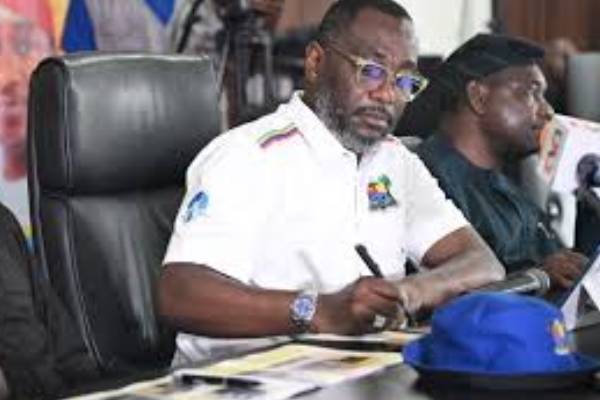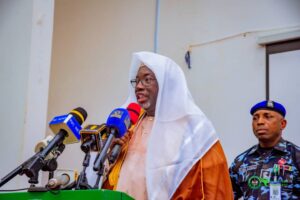In a bid to tackle the escalating threat of coastal erosion in Lagos State, the Commissioner for Waterfront Infrastructure Development, Hon. Ekundayo Alebiosu, has announced plans to significantly scale up the deployment of groyne technology a proven coastal defence system along the state’s increasingly vulnerable shoreline.
Speaking at a Ministerial Press Briefing held at the State Secretariat in Alausa, Alebiosu revealed that he recently led a high-level delegation, including the Permanent Secretary, Mrs Lolade Aina, on a strategic working visit to the Kingdom of the Netherlands.
The visit aimed to explore international best practices and forge partnerships for sustainable coastal management.
Explaining the concept, Alebiosu noted that a groyne is a rigid hydraulic structure constructed from an ocean shore or riverbank to interrupt water flow and limit sediment movement.
Widely used in countries such as the Netherlands, groynes have proven effective in arresting coastal erosion and stabilising beaches.
“Although Lagos State has already commenced the implementation of this technology, the scale of the challenge, stretching across a 180-kilometre shoreline, presents a significant financial burden,” he stated. “It costs a substantial amount to construct a single groyne, and the projected cost of deploying groynes across the entire stretch exceeds ₦3 trillion. This clearly underscores the need for strategic collaboration.”
He stressed that the issue extends beyond Lagos, describing it as a national environmental and economic challenge. “If we are committed to preserving our shoreline, preventing further erosion, and protecting coastal communities, then a robust partnership with the Federal Government and the private sector is not only desirable, it is essential,” Alebiosu said.
The Commissioner highlighted the Netherlands as a global leader in coastal engineering solutions, and an ideal case study for Lagos.
The Dutch model, which integrates groynes, sand nourishment, and nature-based strategies, provided valuable insights into sustainable and economically viable solutions that could be adapted to local conditions.
He also emphasised that the Lagos State Government is actively pursuing a Public-Private Partnership (PPP) framework to fund and implement large-scale groyne deployment and broader coastal protection infrastructure.
“This initiative is in alignment with Governor Babajide Sanwo-Olu’s administration’s broader commitment to protecting lives, safeguarding public and private assets, and unlocking the economic potential of Lagos’ extensive waterfronts,” he added.
“We cannot afford to delay. Entire communities are at risk, and the consequences of unchecked coastal erosion could be devastating not only for the environment but also for livelihoods and investments across our coastal regions.”
The Ministry reaffirmed its commitment to collaborating with international partners, federal agencies, and private sector investors to deliver climate-resilient, long-term solutions that will preserve Lagos’ waterfronts for generations to come.





